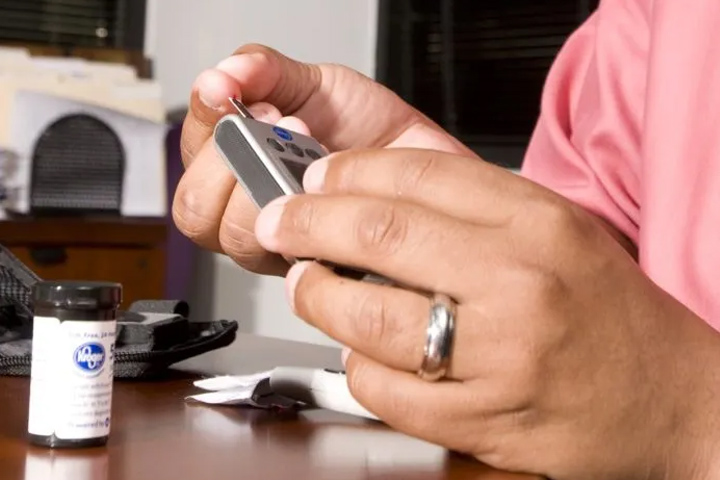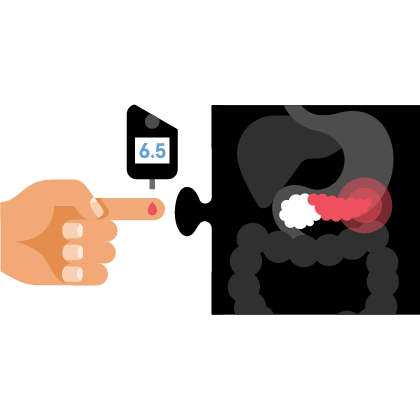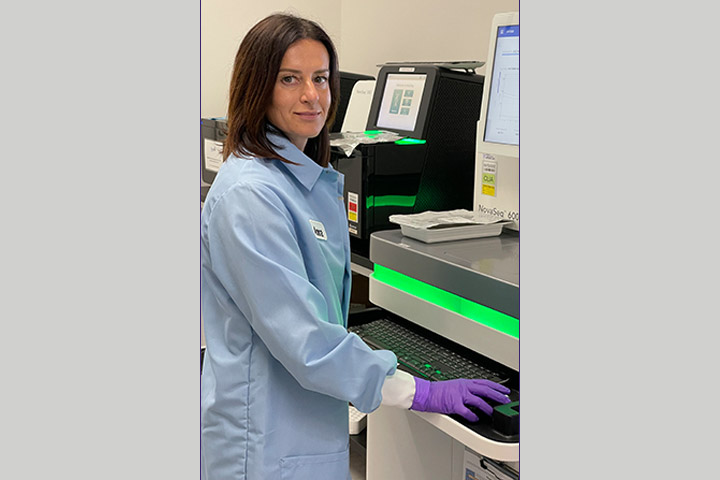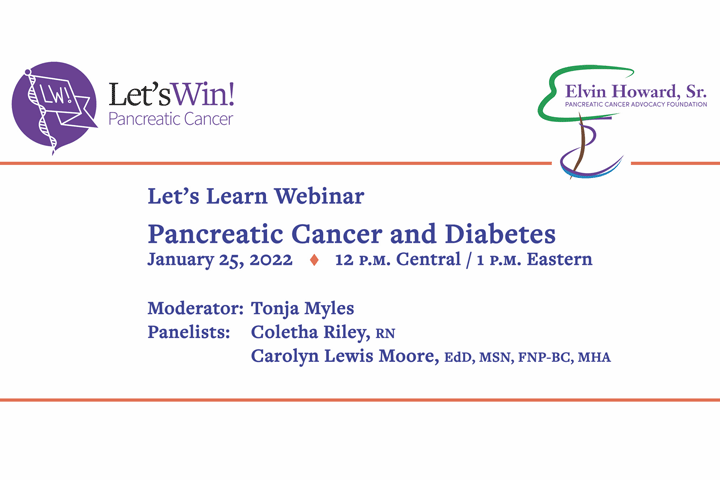The Relationship Between Diabetes and Pancreatic Cancer

No one really thinks about the pear-shaped gland in your abdomen called the pancreas.
But it has numerous jobs, one of which is keeping your blood sugar under control. If your blood sugar gets out of control, you may have diabetes.
Having diabetes puts you at a higher risk for some other serious illnesses like heart and kidney disease, vascular and vision problems, and stroke. What you may not know is that diabetes (both type 1 or type 2) also raises your risk of developing pancreatic cancer. In fact, doctors have known about the diabetes–pancreatic cancer connection for more than a century.
Here’s what you need to know about pancreatic cancer and diabetes:
- Pancreatic cancer is relatively rare, occurring in only about 1 percent of the general population. About 57,000 people each year in the United States are diagnosed with this cancer.
- For people who have had diabetes for a while—more than five years—the risk of developing pancreatic cancer is about double that of a person without diabetes.
- If you are newly diagnosed with diabetes after age 50 you have what is called new-onset diabetes. New-onset diabetes greatly increases your risk of developing pancreatic cancer. Within one to three years after the new-onset diabetes diagnosis, you are eight times more likely to be diagnosed with pancreatic cancer when compared to the general population.
- If you are Black or Latinx, you are more likely than the general population to develop diabetes. This means that your risk of developing pancreatic cancer is also increased, to double that of the general population. If you have new-onset diabetes, that risk increases to almost two and a half times that of all people who have had diabetes for a longer time.
- Some people with new-onset diabetes have a special form of the illness called type 3c. This type of diabetes is caused by a problem in the pancreas, such as a pancreatic tumor. In this instance, diabetes may be a symptom of pancreatic cancer. Type 3c diabetes typically causes weight loss, while a person with type 2 diabetes has typically gained weight before being diagnosed.
Although these statistics might be frightening, relatively few patients with diabetes develop pancreatic cancer. To be clear, diabetes is an all-too-common diagnosis worldwide. And pancreatic cancer is relatively rare.
Diabetes by the Numbers
According to the Centers for Disease Control and Prevention, about 40 percent of adults in the United States are expected to develop type 2 diabetes over their lifetimes. For Hispanic men and women, that rate rises to 50 percent. A study published in the Journal of the National Cancer Institute followed about 50,000 African-American and Hispanic men and women above the age of 50 for about two decades. When the study began, none of the people in the study had diabetes or pancreatic cancer. During the 20-year study period, researchers found 16,000 participants developed diabetes and about 400 developed pancreatic cancer. The important take-away is that the risk of developing pancreatic cancer was 2.5 percent among those who developed diabetes during the study period—remember, all the people in the study were over age 50. Compare this with the 1 percent pancreatic cancer risk for the general population of people with diabetes.
What Should I Do?
The most important thing to do is to get your diabetes under control. The same things that you do to prevent your diabetes from getting worse can also reduce the risk of pancreatic cancer. That means you should take any medicines prescribed, eat healthily, exercise regularly, and stop smoking. In fact, smoking is a very strong risk factor for developing pancreatic cancer. Since it also makes diabetes worse, and it puts you at a much greater risk for serious side effects like having a stroke, quitting is a great idea for many reasons.
What About Screening?
Unlike breast, prostate, or colon cancer, there is no simple screening test for pancreatic cancer. But if a number of your family members have had this disease, that changes everything. The risk for pancreatic cancer can be inherited, just like breast cancer. Certain inherited gene mutations like BRCA (associated with breast, ovarian, and prostate cancers), among other factors, can make you at higher risk for developing pancreatic cancer. In that case, you may be eligible for specialized screening and even clinical trials. If you have any concerns about your pancreatic cancer risk, talk to your doctor. He or she can put you in touch with a genetic counselor who can help identify your risk and recommend what you might do.
On Your Side
Researchers around the world are continuing to study the diabetes–pancreatic cancer connection. The hope is that one day doctors can identify those with diabetes who are at the greatest risk of developing pancreatic cancer. This is important because pancreatic cancer is often diagnosed after it has spread, when it is very hard to treat.






